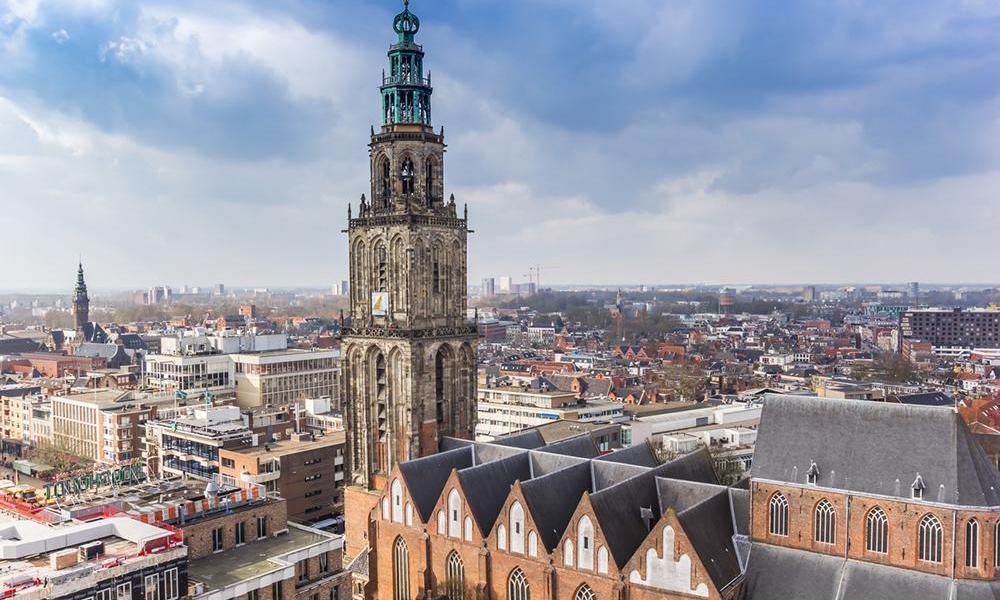International Sport Development

International Sport Development
- Level
- Language
- English
- Credits
- 30 ECTS
- Startmonths
- Start: February, September
- Locations
- Groningen
In this program Sport and Physical Education (PE) will be approached from a Dutch, International and comparative perspective. This means that concepts used in different countries towards PE and Sport will be discussed. The program starts from the idea that teachers in Sport and PE are willing to develop themselves as European or Global citizens. This perspective, the development of an international teachers identity, means that international and intercultural competences are the main focus of the program.
About this programme
Below you can read about the competences, tasks and learning outcomes of this programme. Every student has the opportunity to fill in the described tasks in connection to their ambition, to their talents, or learning wishes.
International and intercultural competences
- Knowledge about and ability in international relations (e.g. foreign language skills and knowledge about the political, social and economic development of countries and regions in sport, health and education). (20EC, portfolio assessment)
- The development of understanding, respect and empathy for people with different national, cultural, social, religious and ethnic origins. (10 EC, Presentation)
Coretasks
The curriculum of the ISD programme is 'core-task' based. This means that the assignments students have to make lead to learning outcomes, which have a positive contribution to competent behavior concerning the task. The task for every student is to show competent performance and development in the four core-tasks (mentioned below).
-
The student has cultural self-awareness of his own frame of reference and his own worldview, and can relate it to other international perspectives
-
Doing international comparative research in the area of PE & Sport
-
International Exchange Program
-
Manage international orientated projects in PE & Sport
Learning outcomes
By following this programme, the student;
- has cultural self-awareness of his own frame of reference and his own worldview, and can relate it to other international perspectives.
- acquires knowledge from sports and education of other cultures through comparative research, and applies this knowledge in an adapted manner with respect for the cultural uniqueness.
- is behaving and communicating effectively and appropriately during intercultural encounters.
- can value the diversity in the professional practice of sports and education, and can communicate his opinion towards these practices.
- knows how to positively contribute to society and the solution of international education and sports issues, and can act like this, and can conceptualize this.
Literature and concepts
The ISD-programme has a democratic approach to education. This means that we assume that students are able to organise their own learning, in cooperation with peers. To create this learning space we focus on tasks, and through these tasks the learning outcomes will be achieved. The consequence of this approach is that there is no (fixed) schedule, or programme. In the programme lectures and assignments will be given. The literature mentioned below can help conceptual development in the area of internationalisation and intercultural competence. The literature is not obligatory (Other concepts, like; 'the participation ladder', 'The Iceberg Model' and 'Action Type', will be discussed in lectures)
Before you can start
Entry requirements
-
Students who are interested in examining physical education and sport from an international and comparative perspective, and studying at higher education level (Bachelor/Master).
-
Students who are studying something else then PE are welcome, but before enrolling contact is advised with the program coordinators.
-
English B
Application
Please register via Osiris (Hanze students) or via Kies-op-Maat (external HBO students).
Students from our partner institutions abroad can apply for this programme as an Exchange Programme. For more information about the steps for our exchange application process click here.
More information?
If you wish to receive more information concerning the program, please contact:
- Roy Epping ([email protected])
- Paul Tesselaar ([email protected])
Admission & application
Please check with your home university whether there is an agreement set up with the Hanze School that is offering the exchange programme of your choice. To apply for and be admitted for our exchange programme you should take the following steps
-
1. Be nominated by your home university
Once you have been nominated, your nomination will be checked by us and confirmed to your home university by email. You will receive your application link during our application period.
-
2. Submit your online application
Once you have been nominated by your home university you will receive a personal application link and the application instructions during our application period. The application is fully digital and documents do not have to be send by email or postal mail. Make sure you do not miss our application deadline!
-
3. Letter of Acceptance
Once you have submitted your application we will check your documents. If you have to re-submit any documents, we will let you know. We will be sending out Acceptance Letters from the beginning of May when you start in September and from the middle of October when you start in February.
Find out more about our application process and practical matters.



